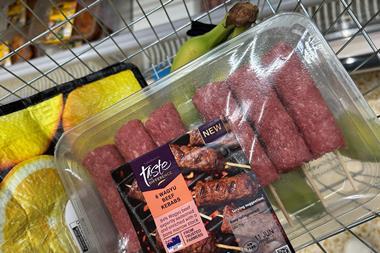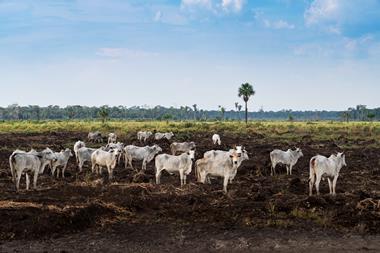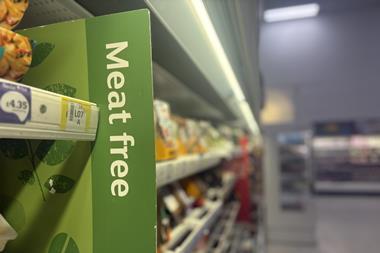Russia and Poland are firing the opening salvos of a meat war that could cut prices across the EU.
Russia has threatened it will no longer allow traders to import meat from the EU as of 1 January.
The ban is on the pretext that Romania and Bulgaria, who join the EU next year, are not up to scratch on food safety.
But high level trade talks have been torpedoed by Poland, which refuses to co-operate with Russia.
The move would force pigmeat and beef producers to find alternative markets for their meat and could create a surplus in the EU.
"This year the EU exported 100,000 tonnes of beef and 120,000 tonnes of pigmeat to Russia," said Peter Hardwick, MLC exports manager in Brussels.
"Though the UK is not approved for direct trade with Russia, the ban could unsettle the market."
With British pig prices directly linked to those in our EU neighbours, a big rise in supplies would deflate the market.
"It could lead to downward price pressure and force the Danes to try and push sales in markets closer to home," said Tony Fowler at BPEX. It could also be a blow for the fledgling business of exporting British beef, much of which is manufacturing grade and sold to buyers in France and the Netherlands.
Most of the EU trade with Russia is forequarter beef for manufacturing, which would have to find a home in the EU.
There was a similar dispute in 2004, when the 10 eastern bloc countries joined the EU, many former Soviet republics.
But in that case, an agreement was brokered before the ban could take place. This time round, a deal could be harder according to Hardwick.
"It's not a technical issue, but it's very political. There's a degree of brinksmanship and we'll have to see how that plays out."
It came down to hurt Russian pride over its former sphere of influence joining the EU, he added. And perhaps an effort to play off the US and EU for supplies, securing lower prices in the process.
Russia has threatened it will no longer allow traders to import meat from the EU as of 1 January.
The ban is on the pretext that Romania and Bulgaria, who join the EU next year, are not up to scratch on food safety.
But high level trade talks have been torpedoed by Poland, which refuses to co-operate with Russia.
The move would force pigmeat and beef producers to find alternative markets for their meat and could create a surplus in the EU.
"This year the EU exported 100,000 tonnes of beef and 120,000 tonnes of pigmeat to Russia," said Peter Hardwick, MLC exports manager in Brussels.
"Though the UK is not approved for direct trade with Russia, the ban could unsettle the market."
With British pig prices directly linked to those in our EU neighbours, a big rise in supplies would deflate the market.
"It could lead to downward price pressure and force the Danes to try and push sales in markets closer to home," said Tony Fowler at BPEX. It could also be a blow for the fledgling business of exporting British beef, much of which is manufacturing grade and sold to buyers in France and the Netherlands.
Most of the EU trade with Russia is forequarter beef for manufacturing, which would have to find a home in the EU.
There was a similar dispute in 2004, when the 10 eastern bloc countries joined the EU, many former Soviet republics.
But in that case, an agreement was brokered before the ban could take place. This time round, a deal could be harder according to Hardwick.
"It's not a technical issue, but it's very political. There's a degree of brinksmanship and we'll have to see how that plays out."
It came down to hurt Russian pride over its former sphere of influence joining the EU, he added. And perhaps an effort to play off the US and EU for supplies, securing lower prices in the process.



















No comments yet